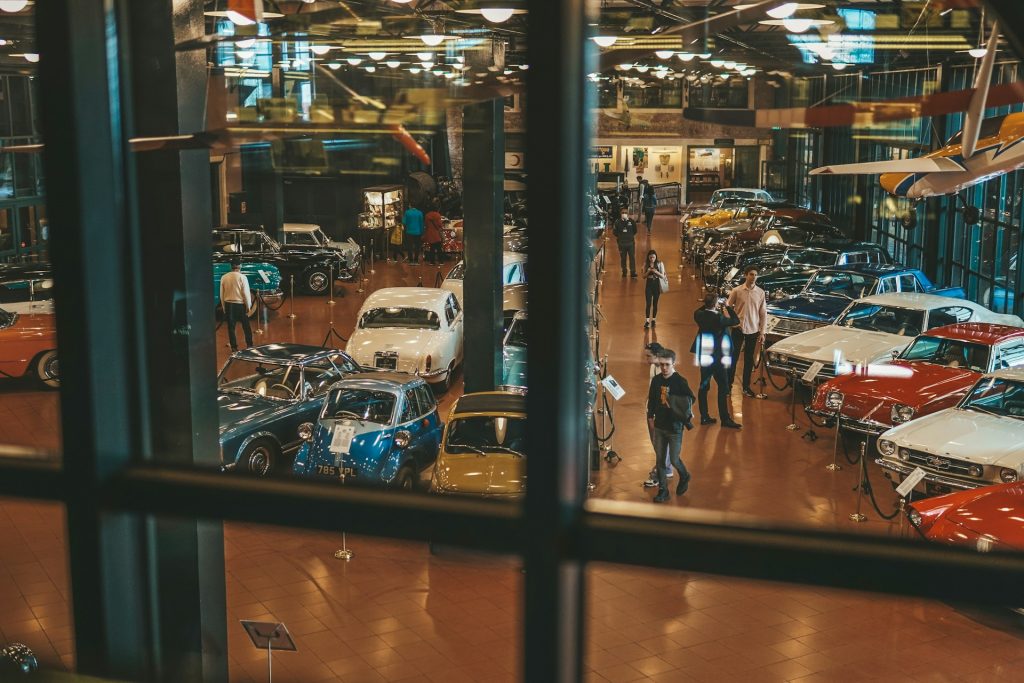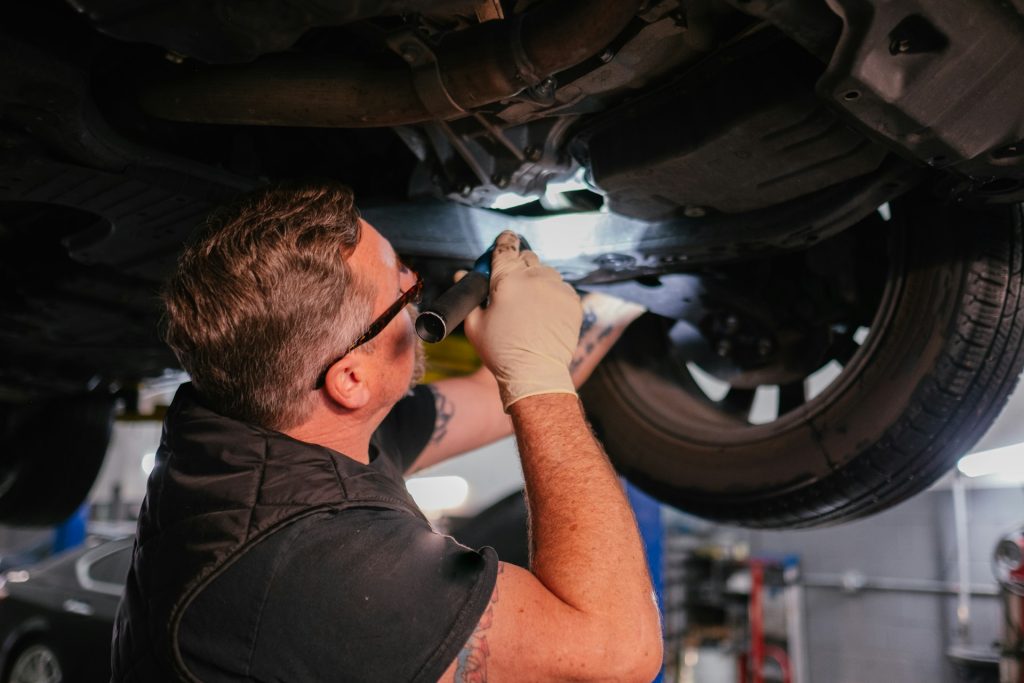Why do cars go to auction? This question piques the interest of many in the automotive world. Auctions serve as a dynamic marketplace for vehicles, offering a unique way for cars to change hands. Understanding why and how cars end up at auctions can provide invaluable insights for anyone interested in the automotive market.
Table of Content
- The Automotive Auction System
- Types of Auto Auctions
- Reasons for Cars Going to Auction
- Buyers and Sellers of Auction Cars
- Should I Buy an Auction Car?
- FAQ
The Automotive Auction System
The automotive auction system is a complex network where vehicles are bought and sold through a competitive bidding process. This system includes a variety of auction types, each with its own set of rules and audience. Auto auctions are critical in maintaining the flow of car inventory, ensuring that vehicles reach the right markets. Prospective buyers often find a used vehicle at these auctions, where most cars are sold at a value reflecting their condition and market demand. For those looking to buy a car, auctions offer a fair chance to acquire a vehicle at a competitive price. However, buyers should be aware that some vehicles might lose money over time due to depreciation or hidden issues. As a result, it’s crucial for buyers to thoroughly evaluate each vehicle before bidding.
The car auction system also includes a number of technology innovations that improve the purchasing and selling experience. Online platforms like A Better Bid have transformed traditional auctions, allowing buyers and sellers to join from anywhere in the world. This digital shift has resulted in more transparent and efficient transactions, with real-time bidding and full car information easily accessible. Additionally, many auction houses now offer condition reports, vehicle history checks, and other due diligence services to help buyers make informed judgments. The incorporation of technology has also simplified payment and logistical operations, making it easier to transfer ownership and transport automobiles after the auction. These developments have made car auctions more accessible and dependable, attracting a wider range of participants and creating a more dynamic and integrated automobile economy.
Types of Auto Auctions

Auto auctions come in several forms. Traditional live auctions allow buyers to bid in person, while online auto auctions offer the convenience of participating remotely. Government auctions focus on selling off lease and repossessed vehicles, and dealer auctions are exclusive, open only to licensed car dealers. Each type caters to specific market needs and buyer preferences. Closed auctions, accessible only to certain groups, often feature high-value or unique vehicles. Physical auctions provide the excitement of a live bidding atmosphere, while bidding online at car auction sites brings a global audience to the sale. Regardless of the format, each in person auction or online event ensures a wide variety of cars sold, catering to different preferences and budgets. This diversity ensures that every prospective buyer can find a vehicle that suits their needs, whether through a traditional auction house or a modern digital platform.
In addition to these types, special auctions also exist, focusing on particular segments of the automotive market. Classic car auctions, for example, attract collectors and enthusiasts looking for vintage or rare models. These events often feature meticulously restored vehicles and can fetch high prices due to their historical significance and rarity. Similarly, luxury car auctions specialize in high-end, premium vehicles, attracting affluent buyers from around the world. These auctions are known for their exclusive selections and high-stakes bidding. Moreover, salvage auctions offer vehicles that have been damaged or deemed a total loss by insurance companies. These cars are typically purchased for parts or by those looking to rebuild and restore. Each of these specialized auctions provides a unique opportunity and serves a distinct segment of the automotive industry, demonstrating the breadth and depth of the auto auction world.
Reasons for Cars Going to Auction

Cars go to auction for numerous reasons. Fleet vehicles and trade-ins from car dealerships often find their way to auctions. Rental car companies and financial institutions may also sell cars to recoup losses or clear inventory. Sometimes, private sellers choose auctions as a quick way to sell vehicles without the hassle of individual sales. Auto auction companies facilitate the sale of these vehicles, including off lease vehicles, ensuring they are sold quickly to make room for new inventory. The geographic location of an auction can influence the types of vehicles available, with some areas favoring certain models or brands. A buyer’s target vehicle might depend on the previous owner’s maintenance and usage, impacting its value and appeal at auction. These factors collectively drive the dynamic and ever-changing inventory found at auto auctions, catering to a broad range of buyer needs and preferences.
Another reason vehicles find up at auctions is when lease arrangements expire. When lease periods expire, leasing companies frequently auction off lease automobiles to better manage their inventory. Additionally, government and law enforcement agencies use auctions to dispose of seized or excess automobiles, which adds to the auction inventory. Manufacturers and distributors may also utilize auctions to sell prototypes, test models, or cars that have not been sold owing to minor flaws. These vehicles provide customers the possibility to purchase less popular models or potentially valuable finds. The multiplicity of auction vehicle origins reflects the automotive industry’s diverse nature, in which numerous stakeholders use auctions as a feasible alternative for car disposition. This complicated chain of sources contributes to the diverse range of automobiles offered at auctions, which serve as a hub for finding cars ranging from daily models to one-of-a-kind treasures.
Buyers and Sellers of Auction Cars

Auction vehicles attract a diverse group of buyers and sellers. From licensed car dealers seeking to replenish their used car inventory, to private sellers and buyers looking for a good deal, auctions provide a platform for various participants. Even rental car companies and financial institutions use auctions to sell off fleet vehicles and repossessed cars. At most auctions, only licensed dealers can bid, ensuring a professional and reliable buying process. The vast majority of vehicles sold are used cars, often with detailed histories of the previous owner and lease term. This transparency allows buyers to confidently pursue their dream car, knowing its background and condition. The auction environment, therefore, not only serves as a marketplace for vehicles but also as a hub where dreams meet reality, with each car having its own story and potential for a new beginning.
Furthermore, auctions are gaining popularity among overseas purchasers looking to import autos from other nations. This global participation has broadened the scope of auctions, introducing a greater range of automobiles to various markets. Insurance firms also participate in auctions, typically selling vehicles that have been deemed total losses but are still salvageable for parts or repairs. In addition to these companies, government agencies frequently sell excess or retired service vehicles at auctions, which can range from standard passenger cars to specialized equipment. Charities have also established a place in car auctions, giving vehicles for sale with the revenues benefiting philanthropic organizations. This varied group of vendors ensures that auction inventories are vary not just in terms of car kinds and conditions, but also in origin and purpose. This variety enhances the auction experience, providing something for almost every sort of car buyer and seller on the market.
Should I Buy an Auction Car?
Buying an auction car can be a savvy choice, but it requires careful consideration. While you can find a good deal, especially on older models, it’s important to proceed cautiously. Inspecting the vehicle thoroughly, understanding its history, and knowing the auction process are essential steps to ensure you don’t end up with a less desirable vehicle. On auction day, whether at physical locations or online auctions, the excitement mounts as bidding begins. Each vehicle’s current bid is displayed, and many auctions set a reserve price, ensuring that the vehicle is not sold for less than its estimated value. For those seeking a new car, auctions can offer an array of choices, but it’s vital to be aware of the bidding dynamics and the final price, which can sometimes escalate quickly. Being prepared and informed can greatly enhance the chances of securing a vehicle that meets both your needs and budget.
Car auctions are a vital part of the automotive ecosystem, offering a unique avenue for buying and selling vehicles. From dealer auctions to online platforms, the auction world is diverse and dynamic. Understanding why cars go to auction and how the process works can empower both buyers and sellers in this vibrant market.
![]() FAQ
FAQ
Show more
Why Do Good Cars End Up at Auction?
Good cars often end up at auctions due to trade-ins, fleet renewals, or because dealers want to quickly sell cars to make room for new inventory. Auctions are efficient for moving vehicles rapidly.
Is It Better to Sell or Auction a Car?
The decision to sell or auction a car depends on the seller’s goals. Auctions can facilitate a faster sale, but might not always yield the highest price. Direct selling offers more control over the price, but requires more effort and time.
What Is the Highest Selling Car at Auction?
The highest selling car at auction varies over time, with classic and rare cars often fetching the highest bids. These vehicles are prized for their historical value, rarity, and condition, making them highly sought after in auctions.
Recommended Articles
:format(webp)/vulcan.abetter.bid%2Fwp-content%2Fuploads%2F2022%2F09%2Ffelix-fuchs-PoPsSRju8Y8-unsplash.jpg)

:format(webp)/vulcan.abetter.bid%2Fwp-content%2Fuploads%2F2024%2F01%2Fevgeni-adutskevich-xhdiBAchlI8-unsplash.jpg)
:format(webp)/vulcan.abetter.bid%2Fwp-content%2Fuploads%2F2022%2F10%2F2022-10-05-11.30.40-150x150.jpg)
 FAQ
FAQ :format(webp)/vulcan.abetter.bid%2Fwp-content%2Fuploads%2F2023%2F02%2Fgetty-images-4D4_sjiYu-Y-unsplash.jpg)
:format(webp)/vulcan.abetter.bid%2Fwp-content%2Fuploads%2F2022%2F10%2F2022-10-05-11.31.58-150x150.jpg)
:format(webp)/vulcan.abetter.bid%2Fwp-content%2Fuploads%2F2022%2F10%2F2022-10-05-11.32.26-150x150.jpg)
:format(webp)/vulcan.abetter.bid%2Fwp-content%2Fuploads%2F2025%2F11%2Fa-better-bid-vs-autobidmaster.png)
:format(webp)/vulcan.abetter.bid%2Fwp-content%2Fuploads%2F2025%2F10%2Fcopart-vs-a-better-bid.png)
:format(webp)/vulcan.abetter.bid%2Fwp-content%2Fuploads%2F2025%2F10%2Fcopart-vs-iaai-1.png)

